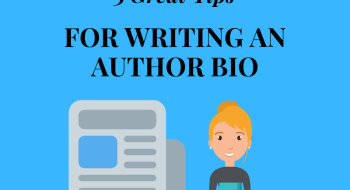How Punctuation Shapes Your Writing’s Rhythm and Meaning

Punctuation in writing might seem like those tiny details you learned in school and promptly forgot, but hold on—those little marks might seem insignificant, but they have the power to turn a chaotic jumble of words into a symphony of meaning.
Punctuation adds to your writing rhythm. It creates the pauses, flows, and emphasis that give your words a sense of cadence and coherence.
Punctuation is also intricately linked with grammar and meaning. Proper grammar ensures that your sentences are structurally sound, while punctuation marks help convey the intended meaning. Together, they create the foundation for clear and effective communication.
The importance of punctuation cannot be overstated. Proper punctuation is not just about adhering to grammatical rules—it is a powerful tool that can transform the way your message is conveyed.
Here are the most commonly used punctuation marks that can influence the rhythm and meaning of your writing.
The Period: A Restful Pause
The period is the simplest of all punctuation marks, but it wields great power. It marks the end of a sentence and signals a complete thought. When you use periods effectively, you provide your readers with moments of rest, allowing them to absorb and reflect on the information presented. Short, concise sentences with well-placed periods can create a straightforward rhythm.
The opening line of Ray Bradbury’s novel Fahrenheit 451 effectively uses a short sentence that ends with a period to hook the reader:
It was a pleasure to burn.
The period in the sentence adds a sense of drama. The sentence also directly connects with the title of the book, giving the readers an idea of its theme.
Authors like Ernest Hemingway, Albert Camus, and Raymond Carver used the period frequently in their works. Consider this introductory paragraph from Hemingway’s novel The Old Man and the Sea.
He was an old man who fished alone in the Gulf Stream. He had gone eighty-four days now without catching a fish. In the first forty days a boy had been with him, but after forty days without a fish, the boy’s parents had told him that the old man was extremely unlucky, so the boy was told to go on another boat which caught three good fish the first week. The boy was sad to see the old man come in empty-handed every day, and he always went down to help him carry his fishing equipment.
Here, Hemingway’s consistent use of the period contributes to his straightforward and simple writing style. Each period marks the end of a thoughtful sentence. With this style, readers can pause and contemplate the old man’s challenging journey and the emotional toll his fishless days at sea took on him.
The Comma: A Subtle Pause
Commas act like brief pauses in your writing. They help separate items in a list and create clarity in complex sentences. They can also alter the meaning of a sentence by changing their placement.
A most-often quoted example that shows the importance of the right placement of comma to convey the meaning of a sentence is as follows:
“Let’s eat, Grandma”
vs.
“Let’s eat Grandma.”
The former clearly shows that there is a family gathering for a meal with Grandma, while the latter seems to suggest a rather macabre family dinner. This humorous yet powerful illustration underscores how a well-placed comma can prevent misunderstandings.
Commas dictate the flow of your words, adding a sense of rhythm and cadence. Here’s a great example from the renowned author F. Scott Fitzgerald in his book The Great Gatsby:
So we beat on, boats against the current, borne back ceaselessly into the past.
In this example, the commas contribute to the poetic flow of the language and highlight the central theme of the novel, which is the persistence of human ambition and the weight of history.
The Semicolon: A Graceful Link
The semicolon is like a bridge that connects related ideas without interrupting the flow. It allows you to join two independent clauses, indicating a close relationship between them. Semicolons add an element of sophistication and rhythm to your writing and provide a smoother transition between ideas.
Admittedly, many authors are not fans of the semicolon, with some calling it “ugly” and “pretentious”; but American author and critic Lauren Oyler disagrees. In her New York Times article titled “The Case for Semicolons,” she states,
There are so many things to fear in life, but punctuation is not one of them. That semicolons, unlike most other punctuation marks, are fully optional and relatively unusual lends them power; when you use one, you are doing something purposefully, by choice, at a time when motivations are vague and intentions often denied. And there are very few opportunities in life to have it both ways; semicolons are the rare instance in which you can; there is absolutely no downside.
The semicolon is a valuable punctuation if you seek to connect related ideas while maintaining a sense of separation, as shown by the abovementioned quote.
The Colon: A Clarifying Spotlight
Colons draw attention to what follows and signal that the information after the colon directly relates to what precedes it. They are often used to introduce lists, examples, or explanations. Colons give your writing a sense of anticipation, guiding the reader’s focus to the key details.
Ralph Ellison uses the colon effectively in the introductory paragraph of his short story “Battle Royal”:
It goes a long way back, some twenty years. All my life I had been looking for something, and everywhere I turned someone tried to tell me what it was. I accepted their answers too, though they were often in contradiction and even self-contradictory. I was naive. I was looking for myself and asking everyone except myself questions which I, and only I, could answer. It took me a long time and much painful boomeranging of my expectations to achieve a realization everyone else appears to have been born with: That I am nobody but myself.
In the above quote, Ellison employs the colon to introduce the reader to the central theme of his work: identity and self-discovery. The colon effectively amplifies what has preceded it. At the same time, it draws attention to what follows it.
The Exclamation Point: An Energetic Emphasis
Exclamation points inject energy and excitement into your writing. They signal surprise, enthusiasm, or urgency. However, you should use them sparingly, as overuse can diminish their impact. When used appropriately, exclamation points can create a dynamic rhythm and convey a strong emotional tone.
The author Tom Wolfe was fond of exclamation points. In fact, someone counted the number of exclamation points in his book The Bonfire of Vanities, and it went up in the thousands. Here’s an excerpt from his book:
All at once Sherman was aware of a figure approaching him on the sidewalk, in the wet black shadows of the town houses and the trees. Even from fifty feet away, in the darkness, he could tell. It was that deep worry that lives in the base of the skull of every resident of Park Avenue south of Ninety-sixth Street—a black youth, tall, rangy, wearing white sneakers. Now he was forty feet away, thirty-five. Sherman stared at him. Well, let him come! I’m not budging! It’s my territory! I’m not giving way for any street punks! The black youth suddenly made a ninety-degree turn and cut straight across the street to the sidewalk on the other side. The feeble yellow of a sodium-vapor streetlight reflected for an instant on his face as he checked Sherman out. He had crossed over! What a stroke of luck! Not once did it dawn on Sherman McCoy that what the boy had seen was a thirty-eight-year-old white man, soaking wet, dressed in some sort of military-looking raincoat full of straps and buckles, holding a violently lurching animal in his arms, staring, bug-eyed, and talking to himself.
Although some ridiculed him for his use of exclamation points, he believed it was quite justified.
Meanwhile, American novelist Elmore Leonard advises moderation in employing exclamation points. According to him, unless you’re Tom Wolfe, you should keep your exclamation points under control—that is, not more than two or three per 100,000-word prose.
The Question Mark: An Inquisitive Note
Question marks turn statements into inquiries, inviting reader engagement. They set a questioning tone and signal that an answer or a response is expected. Question marks add an element of curiosity and rhythm to your writing, encouraging interaction.
Numerous authors even use the question mark in the title of their works alone. Consider the following book titles:
Why Didn’t They Ask Evans? by Agatha Christie
Are You Afraid of the Dark? by Sidney Sheldon
Who Moved My Cheese? by Spencer Johnson
What Was I Scared of? by Dr. Seuss
Can You Keep a Secret? by Sophie Kinsella
By ending the title with a question mark, readers’ curiosity is piqued, and they are drawn to the content of the books.
The Dash: An Interrupting Dash
Dashes—both em and en dashes—create abrupt interruptions. They can be used to insert additional information or provide emphasis. Dashes break the flow of the text and create a stop-and-start rhythm that draws your reader’s attention to specific details.
Here’s an example from R. L. Stine’s Stinetinglers:
I’m pretty sure I imagined it. I saw a black spot move on the floor of the stoop. A big spider. And I’m not sure, but I think I saw Garg reach down and pick the spider up between his fingers—and pop it into his mouth.
In the above quote, the em dash effectively emphasizes the abruptness and shock of the moment. It serves as a powerful pause that creates a sharp break between the description of the spider and the unexpected action of Garg. It was a seemingly mundane scene, but with the use of the em dash, that scene transformed into something unsettling.
Perhaps one of the best-known users of the dash is Emily Dickinson. In her poem “‘Hope’ Is the Thing with Feathers,” she mainly uses dashes.
“Hope” is the thing with feathers—
That perches in the soul—
And sings the tune without the words—
And never stops—at all—
And sweetest—in the Gale—is heard—
And sore must be the storm—
That could abash the little Bird
That kept so many warm—
I’ve heard it in the chillest land—
And on the strangest Sea—
Yet—never—in Extremity,
It asked a crumb—of me.
Although some would find the dashes unusual, they are actually part of her style of communicating her message. The dashes can both convey and obscure her theme, which allows the reader to think critically. With the dashes, Dickinson allows the reader to linger on each thought and emotion.
The Ellipsis: A Suspenseful Pause . . .
Ellipses, three dots in a row, are used to indicate omissions, hesitation, or trailing thoughts. With the sense of anticipation they create, readers are drawn deeper into your narrative. Ellipses can infuse your writing with an air of mystery and rhythm, leaving room for interpretation.
Authors Joseph Conrad and Ford Madox Ford, regarded as two of the greatest literary writers of the 20th century, are fans of the ellipses, as shown in their 1901 novel The Inheritors. Here’s an excerpt:
“Ah, no,” she said, “you must not say that. You don’t understand . . . Even that would mean misery for you—and I—I could not bear. Don’t you see? Even now, before you have done your allotted part, I am wanting—oh, wanting—to let you go…. But I must not; I must not. You must go on . . . and bear it for a little while more—and then . . .”
There was a tension somewhere, a string somewhere that was stretched tight and vibrating. I was tremulous with an excitement that overmastered my powers of speech, that surpassed my understanding.
“Don’t you see . . .” she asked again, “you are the past—the passing. We could never meet. You are . . . for me . . . only the portrait of a man—of a man who has been dead—oh, a long time; and I, for you, only a possibility . . . a conception . . . You work to bring me on—to make me possible.”
The ellipsis points serve to convey the character’s inner turmoil, hesitation, and unspoken emotions. They add depth and complexity to the character of the narrative by creating a sense of suspense.
Conclusion
Aside from the fundamental punctuation marks mentioned above, there are many other symbols and formatting choices that can further influence the rhythm and meaning of your writing. You can use parentheses, brackets, quotation marks, and italics to emphasize or highlight certain points in your book. The key is to understand the nuances of each mark and use them judiciously to enhance your communication.
Remember that punctuation in writing guides readers. You should ensure that your writing is well-punctuated so that it imparts the right emotions and conveys your desired message to your audience. A properly punctuated work entices readers to continue reading.
The next time you start writing something, remember the power of punctuation, and allow it to shape your writing.
Become a Self-Published Author in 3 Simple Steps
Powered by Experts, Published by You. Reach 40,000+ Retailers & Libraries Around the World. Concierge Service. Tailored Packages. BBB Accredited Business. 100% Royalty Program.


